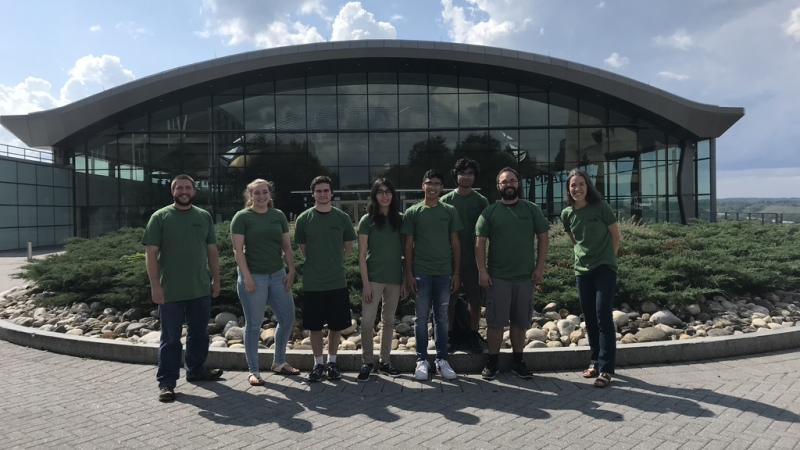Open-source “Submitty” offers a tailor-made learning tool for online classes
May 27, 2020

When they started developing an online classroom interface, the creators of Submitty could not have known how critical it would be for remote learning during the COVID-19 pandemic. In the spring 2020 semester, more than 2,000 students and 242 professors, teaching assistants, and mentors relied on the open-source tool designed and built by students, faculty, and teaching assistants at Rensselaer Polytechnic Institute.
“Seven required courses in our major, plus most of our concentration courses, depend heavily on Submitty, using it for virtually every aspect of the course,” said Chuck Stewart, head of the Rensselaer Computer Science Department, which is the heaviest user of the program. “The array of features is far more advanced than commercial products vendors promote to us. Submitty is an ideal academic software product: innovative, extremely useful, a platform for research in education, and a great resume builder for all contributors.”
The program is available in open-source format for free download on GitHub.
Rensselaer faculty, teaching assistants, and students use the many features within Submitty to discuss material, queue up for virtual office hours, submit assignments in a variety of formats, create and take tests, manually or automatically mark work, and distribute and receive grades, according to Barb Cutler, an associate professor of computer science and the lead developer on the program.
Because Submitty is built in-house, it’s also packed with smaller features that were suggested by users, like a plagiarism detector, yearbook-style student photos, time-released distribution of materials, a management system for approved excuses, a flexible assignment late-day tracker, and a “dark mode” — a student favorite — that displays the website with a dark background for better nighttime viewing.
Acting as program managers and administrators, Cutler and graduate students Matthew Peveler and Evan Maicus have been building Submitty with undergraduate student developers in RCOS, the Rensselaer Center for Open Source, since 2014. The original team set out to rebuild an existing and outdated closed-source tool used to upload assignments. But each year, the team refines the program and add new features.
Dozens of students have contributed to Submitty, including students in RPISEC, the Institute’s award-winning cybersecurity club, who offer “bug reports” on specific vulnerabilities. For the past two summers, as they will this coming summer, Submitty managers hired students to work on the website with funding from the global Google Summer of Code program.
Earlier this year, when Rensselaer unexpectedly and temporarily shifted entirely to remote learning amid the COVID-19 outbreak, Submitty took on a larger role.
“All of our tests for the second half of class and many of the final exams were done using that system. I don’t know what we would’ve done without it,” said Cutler, winner of the 2019 Rensselaer Trustees Outstanding Teaching Award.
The system has continued to evolve in recent months. For example, developers recently added a feature to their online queueing system for office hours that allows teaching assistants to easily call waiting students via Webex when their turn has arrived.
“It’s one of those features that I, as an instructor, wouldn’t have thought to add, but when a 500-person data structures class moves to remote learning, it’s become essential,” Cutler said.
This summer, Cutler said she expects developers will work on a double-blind peer grading system, to allow students to review and critique some of their classmates work, push notices for elements like the discussion board, and ensure the entire program is more mobile friendly.
Cutler recalls the group of first-year students in her Data Structures class who proposed the RCOS project to rebuild the original closed-source homework collection tool, which Cutler was administering on behalf of the department at the time.
“I knew it was a really big project to do and that there were a lot of important pieces,” Cutler said. “I didn’t really think they were going to succeed, but it turned out they were some of the best students in the class. I had no idea it would grow to where it is today, and I certainly couldn’t have known how critical it would become.”